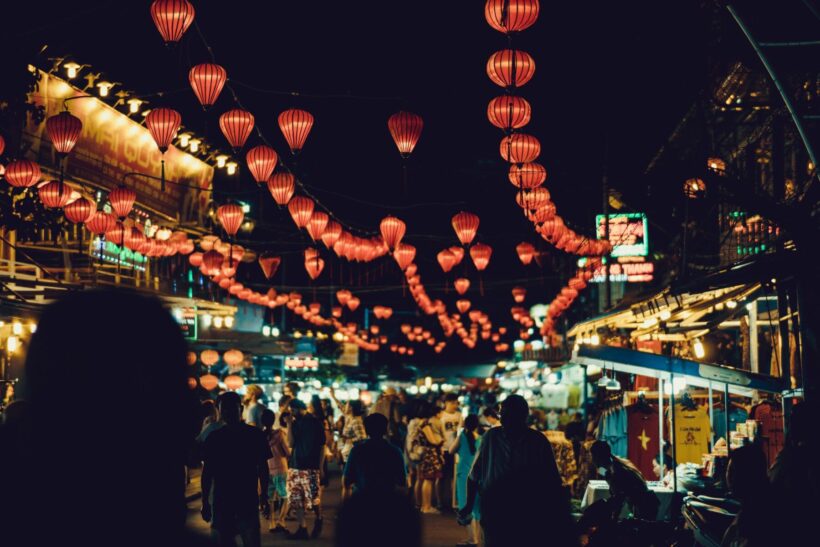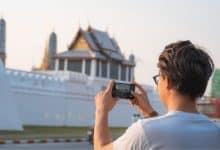Is Vietnam opening its borders to international visitors?

Press Release
Vietnam is one of the most visited countries in Southeast Asia. Before the pandemic shutting the international borders of countries around the world, Vietnam was regularly competing with Thailand for being the most popular destination in the entire region.
Once the coronavirus proved to be here for the long haul, the government had to make the difficult decision to cut off that steady stream of outside capital and prioritize the health and wellbeing of its citizens.
Recently, transmission and hospitalization numbers have seen a sharp decline in Vietnam, and the government has responded with an exciting announcement. Starting on March 15th, Vietnam is fully opening its borders to foreign visitors.
This is a start turnaround from health officials who earlier forecasted that borders would not be open until summer. However, it is in line with the government’s recent decision to consider living with the virus instead of trying to extinguish it entirely.
The news means that vaccinated visitors will be able to apply for and receive a visa or visa waiver to visit Vietnam, provided that they meet the requirements for approval of a visa and comply with the guidelines spelt out by the Vietnamese government.
So, what are those documents and what else should potential travellers to Vietnam know before going?
What Travel Documents Are Required for Tourists to Vietnam?
International travellers who have resumed flying after governments reopened their borders are no doubt familiar with what extra paperwork is required of them. Especially concerning the newer documentation that border officials are asking them for.
Chief among the papers that each traveller must show to gain access to Vietnam is proof of double vaccinations. The vaccines must be on the list of approved vaccines such as Pfizer, Moderna, or AstraZeneca.
Another document relating to COVID-19 that each traveller must show is proof of a negative test before arrival. Visitors must also show a completed health declaration form and prove they have acquired health insurance that covers them for the duration of their time in Vietnam.
To successfully apply for approval to enter Vietnam, prospective visitors will need to have several personal documents on hand. First and foremost, among them is a valid passport from a country that is eligible for a visa to Vietnam.
Other papers include proof of an approved Vietnamese application, which should be printed out and carried with you to the border in case officials want to check their records against yours.
Besides the items listed above, you may need to verify bits of personal information via documentation or to show proof of your itinerary or accommodation plans. However, these are more likely to be solicited during the visa application process. It would be rare if anyone required them at any point during your stay in Vietnam.
What Restrictions Should Travelers Expect to Find in Vietnam Upon Arrival?
The most important factor to consider for anyone planning a trip to Vietnam is that every visitor will need to quarantine for one full day. If they test negative for the coronavirus after their quarantine has reached twenty-four hours, then they are free to begin their vacation.
It is also crucial to keep in mind that although the country is opening itself up to outside visitors, not every region in Vietnam will have the same set of rules and guidelines.
For this reason, travellers need to stay aware of the latest announcements regarding what is and is not allowed. The last thing anybody would want to do is to plan a trip to a rural area of the country like Sapa only to find that they have wasted their time and money because of COVID-19-related issues.
In general, the population has responded well to the government implementing restrictions on society, which is one of the reasons why the borders are opening three months ahead of schedule. For that reason, tourists can safely start planning their trip to Vietnam, confident that they will arrive not only in a spectacular country but in a safe one.
Where Should My Vietnamese Adventure Lead Me?
The two main cities in Vietnam are both wonderful tourist destinations. Hanoi, the capital city, is a picturesque urban setting with layer upon layer of history built into its infrastructure. The French Quarter, for example, is a charming if not important reminder of its not-so-distant colonial past.
Further south, Ho Chi Minh City, formerly known as Saigon, is a bustling and modern metropolis that is the perfect destination for big-city lovers.
If anyone prefers to stay out of the madness of a big city, Vietnam is packed with smaller locations that are well worth a visit. The list starts with Ha Long Bay and includes places like Hoi An, Phu Quoc, Danang, Hue, and many more.
Now that the borders are open, where you go in Vietnam is really up to you.
Latest Thailand News
Follow The Thaiger on Google News:



























